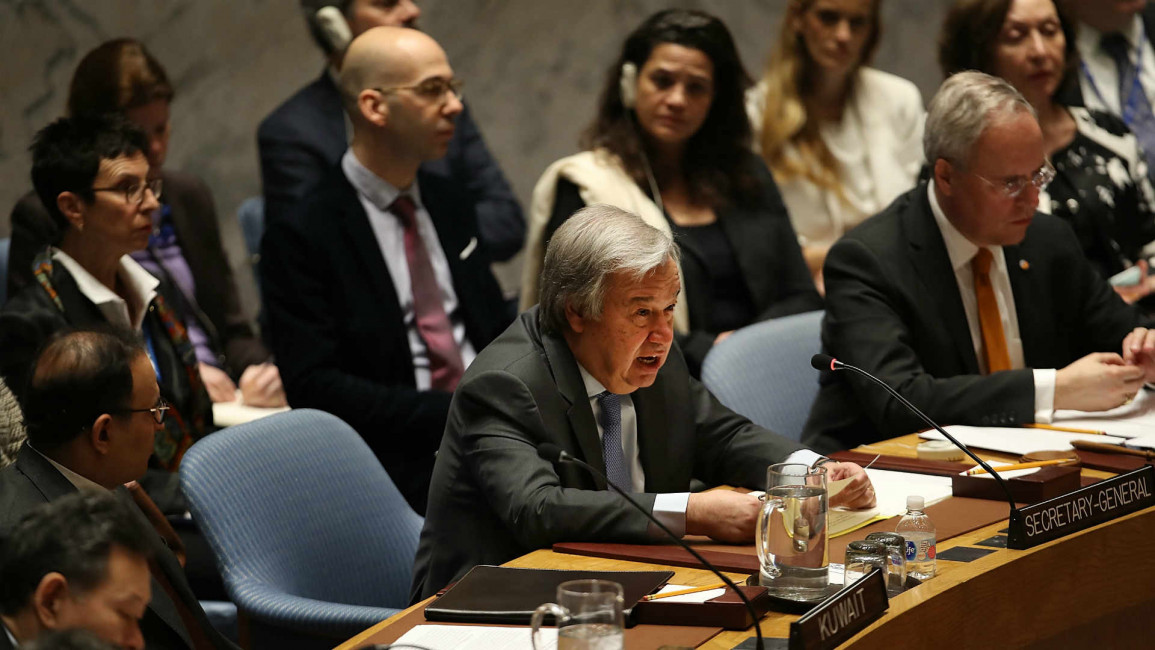UN chief condemns devastating airstrike on Yemen wedding
UN Secretary-General Antonio Guterres on Monday strongly condemned airstrikes targeting a wedding celebration in Yemen and called for an investigation.
Yemen's Houthi rebels have named the Saudi-led coalition as perpetrators of the twin strikes on the wedding in northern Hajjah province late Sunday, that killed scores of people, many of them children.
Guterres "strongly condemns the airstrikes on a wedding party in Hajjah and on civilian vehicles in Taiz, where at least 50 civilians, including children, were reportedly killed and scores of others injured," said a UN statement.
The UN chief "reminds all parties of their obligations under international humanitarian law concerning the protection of civilians and civilian infrastructure during armed conflicts".
He called for "a prompt, effective and transparent investigation" of the air strikes which were carried out as the United Nations is seeking to re-launch political talks to end the war in Yemen.
Guterres last year put the Saudi-led coalition on a UN blacklist of child rights' violators for killing and maiming children in Yemen through its campaign of airstrikes targeting civilian and residential areas.
The top diplomat has previously blasted the conflict in Yemen as a "stupid war" that is neither in the interests of the warring Yemeni or Saudi factions.
The coalition intervened in March 2015 to push back the Houthis who continue to control the capital Sanaa.
The Houthis on Monday accused the coalition of killing their political leader, Saleh al-Sammad, in an airstrike last week.
The Houthis' supreme leader Abdulmalik al-Houthi gave a rare televised public statement in which he said Saudi Arabia and the US will be held responsible for what he called the "heinous crime" of Samad's death.
He also condemned Sunday's devastating airstrikes, saying the attacks would strengthen communities, and the "martyrs" would not be forgotten and their families honoured.
The war in Yemen has killed nearly 10,000 people and led to the world's worst humanitarian crisis, with 75 percent of the population in dire need of aid while one million Yemenis are suffering from a severe cholera outbreak.


![President Pezeshkian has denounced Israel's attacks on Lebanon [Getty]](/sites/default/files/styles/image_684x385/public/2173482924.jpeg?h=a5f2f23a&itok=q3evVtko)



 Follow the Middle East's top stories in English at The New Arab on Google News
Follow the Middle East's top stories in English at The New Arab on Google News


